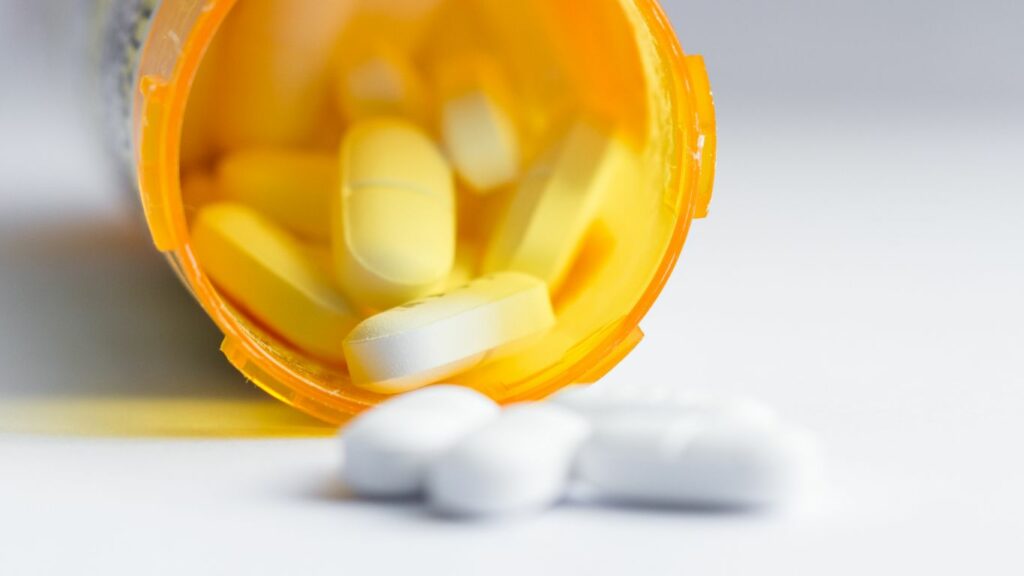What Are Opioids?

Examples of Opioids
Opioids are classified as drugs that are found and created from an opium poppy plant. Individuals that are abusing opioids will experience feelings of pain relief and euphoria. Individuals will experience these feelings due to the opioids impacting the brain’s opioid receptors increasing a person’s brain capacity to block pain signals.
Opioids that are commonly abused are:
- Prescription opioids including Oxycodone or Vicodin
- Heroin
- Fentanyl which is classified as a synthetic opioid that is twice as strong as morphine
What is the Difference Between Opioids and Opiates
An opioid and opiate drug are both considered to be narcotics that are designed to be methods of pain management. However, the difference between opioids and opiates is the method in which they are made. An opiate is derived from a poppy plant and created through a chemical compound from a poppy plant. Whereas an opioid is typically not created from a poppy plant as they are designed and manufactured within a lab.
What Are Opioids Used For?
Opioids were originally a school of medicine created and prescribed to relieve pain for individuals experiencing high levels of pain and discomfort often from medical conditions such as cancer or for individuals who had surgery. However, the allure of an escape and the intense euphoric high can quickly lead someone down a path of opioid misuse and drug abuse without them seeing it coming. There are different levels of prescription pain medication and opioids that are varying in levels of pain management. There are some opioid basics that are given at a low dose for treating acute pain from symptoms of a cold or flu. However, there are other prescription pain opioids that are used to treat moderate to severe pain which often results in higher doses and frequencies. As an individual develops a tolerance to prescription opioids causing a person to have to use more and more prescription opioids to reach the same desired effect.
Is Ibuprofen An Opioid?
Ibuprofen is not considered to be a prescription opioid although it can be an effective method of pain management especially when used in conjunction with acetaminophen it has been known to provide exceptional pain relief. Ibuprofen is considered to be a nonsteroidal antiinflammatory drug (NSAIDs) which are commonly prescribed to relieve pain, treat inflammation, and reduce swelling.
What Are The Long Lasting Effects of Opioid Abuse?
When someone is living with an opioid use disorder, there can be long term effects from their drug abuse that will impact a person’s physical, mental, and emotional health. Common long term effects of opioid abuse are:
- Complications within the gastrointestinal system causing health care concerns such as chronic or recurring constipation. This can lead to some individuals having to be hospitalized for bowel blockage that can have the potential of becoming fatal
- Respiratory failure or complications including slowed or irregular breathing, and respiratory arrest. This can cause a lack of oxygen to the brain resulting in an opioid overdose.
- Cardiovascular system experiences complications including heart rhythm abnormalities that can lead to adverse cardiac events such as heart attack, stroke, or death.
Opioid Detox and Rehab at Quantum
Overcoming your opioid addiction within the recovery center at Quantum Behavioral Health will provide patient care that will support you in healing from your opioid addiction within your body, mind, and spirit. Patients will be able to safely overcome the physical addiction to opioids through our medical detox that provides patients with the support of health care professionals that will ensure you move through your withdrawal symptoms comfortably and safely. Once you have overcome your withdrawal symptoms, you will be ready to treat the underlying causes of your opioid addiction through a drug rehab program that will be centered around healing from the emotions and traumas that have influenced you taking opioids and your addictive behaviors.
Call Quantum today at (609) 993-0733 to talk to our health care provider to hear more about the safe, comprehensive approaches to prescription drug detox and prescription drug opioid treatment that are offered within our opioid treatment center and will support you in entering into a life of opioid addiction recovery.